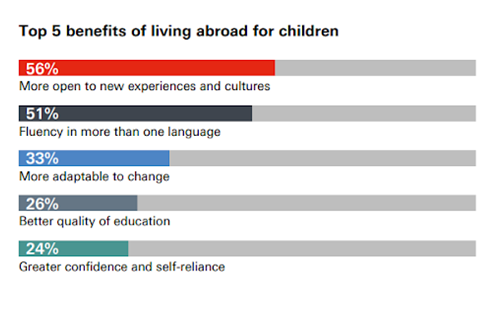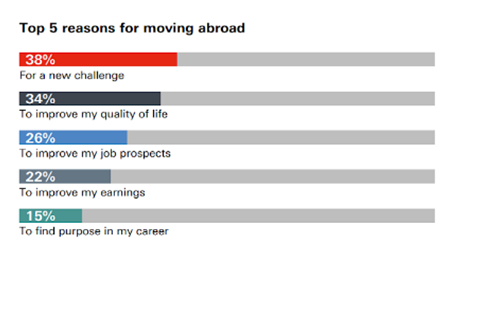What Does Living Abroad Do to Your Self-Awareness?

Source:Shutterstock
If you’re looking for a new challenge or hoping to improve your career prospects, a group of academics has some good news: living in a different country makes you more self-aware.
Views
What Does Living Abroad Do to Your Self-Awareness?
By Emma Charltonweb only
Need another reason to consider moving abroad?
If you’re looking for a new challenge or hoping to improve your career prospects, a group of academics has some good news: living in a different country makes you more self-aware.
For companies, the findings may have practical applications, since they show global experience is also likely to help people make clear decisions at work.
A Clearer Sense of Self
The researchers, led by Adam Hajo at Rice University in Texas, found the length of time spent abroad – what they called “depth” – plays a greater role in enhancing self-awareness than “breadth” of experience, or the number of countries lived in. In other words, the longer people live away from home, the better their understanding of themselves and the more likely they are to be able to make clear career decisions.
Those findings are consistent with HSBC’s Expat Explorer survey which concluded that overseas living has benefits from a young age. Around a quarter of expat parents found their children’s confidence and self-reliance improved.
Duration, or depth, was also the key factor in that report, with the longer families spent away from their home nation accruing greater benefits for the children.
 Image: HSBC Expat Explorer survey
Image: HSBC Expat Explorer survey
"Living abroad affects the fundamental structure of the self-concept by enhancing its clarity," according to Hajo and his fellow researchers. "In a world where living-abroad experiences are increasingly common and technological advances make cross-cultural travel and communication ever easier, it is critical that research keeps pace with these developments and seeks to understand how they affect people."
 Image: HSBC Expat Explorer survey
Image: HSBC Expat Explorer survey
So how does the effect work? According to the research, living abroad makes you reflect more on yourself as you grapple with the cultural differences in your new location. That reflectiveness helps anchor the values and norms that define you.
The paper – a joint venture between Rice University, Columbia University, the University of North Carolina and the Massachusetts Institute of Technology – is the result of six studies that involved 1,874 participants.
"Our research suggests that going far from home can lead one closer to the self, with implications for significant life decisions," it said. One of the important consequences is "career decision-making clarity."
‘Anywheres’ and ‘Somewheres’
While the researchers note that foreign experiences are increasingly common in our globalized world and that companies need to recruit foreign talent in order to stay competitive, the findings may jar with recent political developments.
President Donald Trump’s “America First” policies and the UK’s vote to leave the European Union have exposed political and social fault lines. This segmentation shows the difference between “Anywheres” and “Somewheres,” according to the British author David Goodhart.
In his characterization, 'Anywheres' derive their identities from their achievements and have usually moved away from their home towns, including perhaps to a different country. Making these moves gives 'Anywheres' portable identities based on educational and career success and that makes them comfortable and confident with new places and people.
By contrast, 'Somewheres' usually have identities that are linked to belonging to a particular group or place, and a core section of those include people who feel economically disenfranchised and can tend to vote for protectionist policies like those espoused by President Trump.
The Wellbeing Boost
As well as greater self-awareness, the academics outline other benefits associated with spending time abroad, including better psychological wellbeing, decreased stress and improved job performance.
In a world where automation and globalization are dominant themes, they conclude that having a clearer sense of self will probably become increasingly important.
Edited by Shawn Chou
Additional Reading
♦ ‘Farewell, Taiwan’
♦ Fighting the Brain Drain
♦ How I Tried (and Failed) to Become an Internet Celebrity in Taiwan and China (1/2)
Original content can be found at the website of World Economic Forum.
♦ What living abroad does to your self-awareness
This article is reproduced under the permission of World Economic Forum (WEF) and terms of Creative Commons Attribution-NonCommercial-NoDerivs 4.0 Unported License (“CCPL”). It presents the opinion or perspective of the original author / organization, which does not represent the standpoint of CommonWealth magazine.







